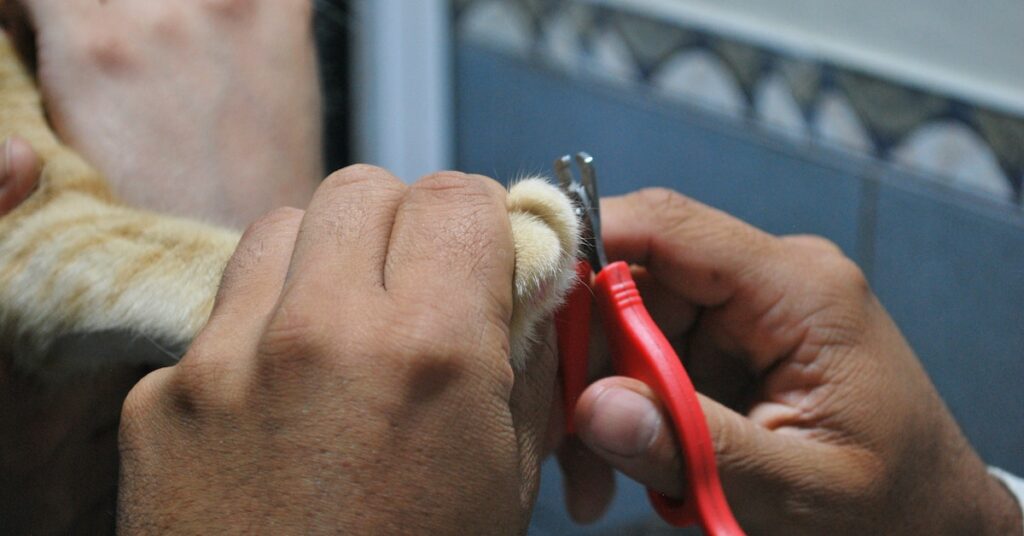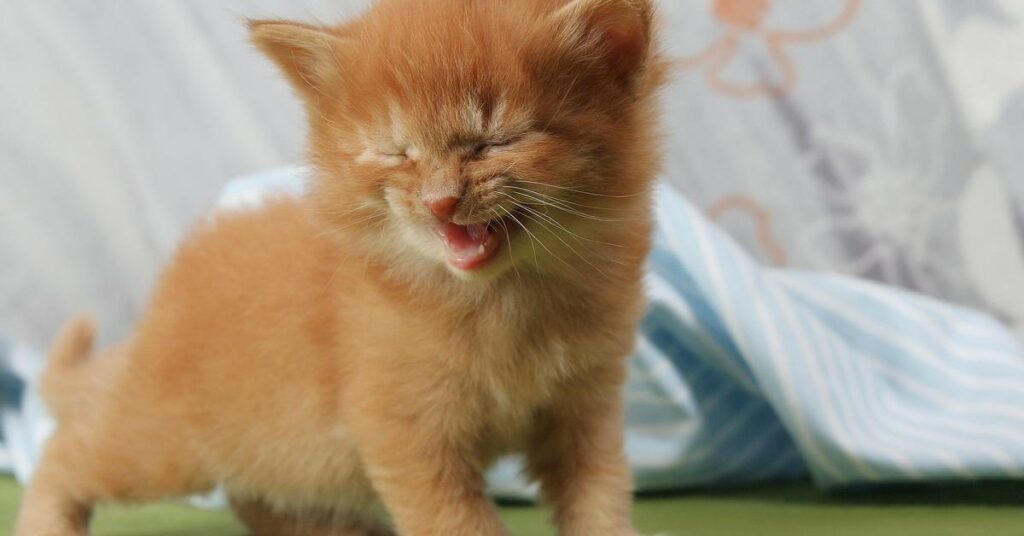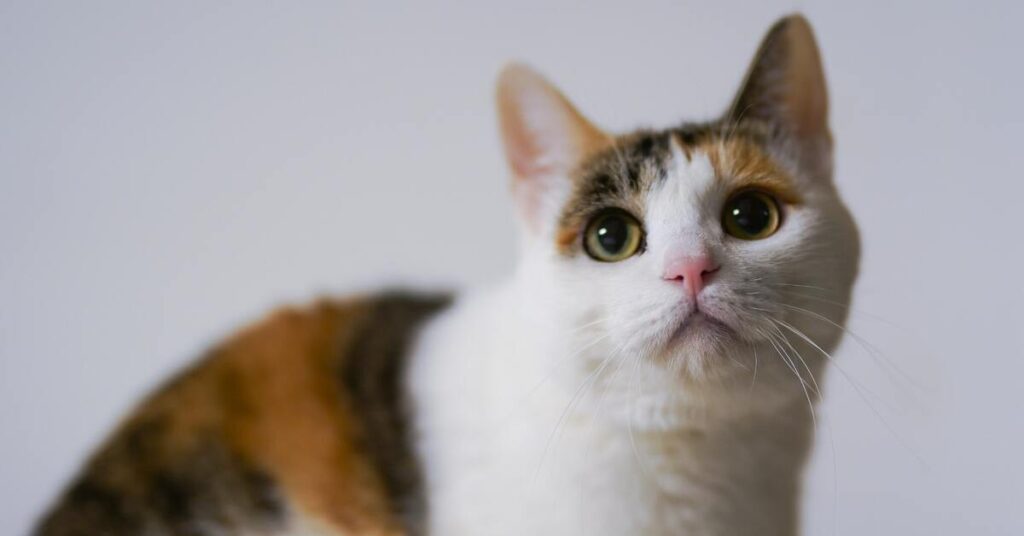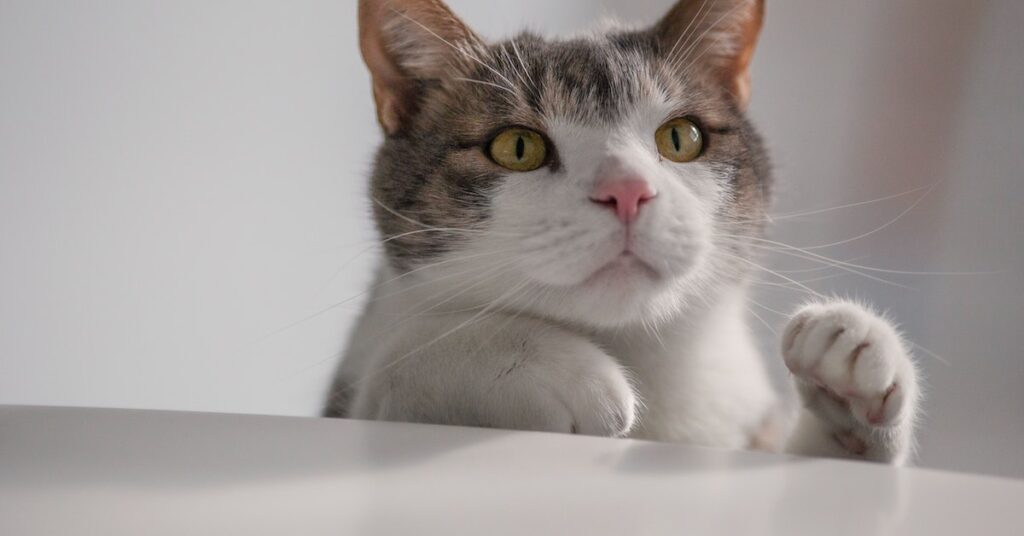If you’ve ever watched a YouTube video of a cat biting its nail, you may have wondered why cats do that. Cats’ nails become worn down over time and can crack and turn dull. They also grow in multiple layers. Once the outermost layer has become useless, they may decide to discard it. Various theories have been presented by viewers, including over-grooming, anxiety, fungal infections, and yeast infections.
Read more about Why Do Cats Lick Theirselfs So Often?
Anxiety
If you notice that your cat has been biting its nails more than usual, you may be wondering why. There are several reasons for this behavior, including anxiety, physical pain, or conflicts in the cat’s life. Whether the behavior is related to anxiety or to a physical problem, you should see a vet to determine the cause. A vet can help you determine if your cat is suffering from a physical problem or if it is simply a case of anxiety.
If your cat is constantly biting its nails, it could be a sign of an underlying condition that needs professional help. There are several reasons why cats bite their nails, including anxiety and loneliness. If your cat is displaying aggression toward you or other people, you may need to seek veterinary care to get a diagnosis. Anxiety is a common underlying condition in cats. If your cat is biting its nails excessively, it may be a sign of a more serious medical issue.
You may be able to determine whether your cat is suffering from anxiety through sudden changes in its behavior. Other indicators of anxiety in cats include excessive grooming and over-grooming, restlessness, and decreased appetite. However, determining the root cause of anxiety in your cat can be tricky. If your cat bites its nails because of anxiety, you may want to consult a vet to see what you can do to alleviate the problem.
Some cats bite their nails because they are nervous or anxious. While the habit is a harmless habit, you should be aware that it can also be a sign of underlying medical conditions. You may want to consider visiting a veterinarian if your cat is biting its nails excessively. Your cat may need medical treatment if you suspect it is suffering from a underlying condition. If the behavior has been a chronic problem, your cat may have a medical problem.
Read more about Why is My Cat So Hyper?
Over-grooming
Over-grooming in cats can be a problem. It can lead to stress and anxiety in the cat, which may lead to the habit. The behavior can also be caused by parasites or fleas. Cats suffering from over-grooming can also suffer from hyperthyroidism, a glandular disorder in which the cat produces too much thyroid hormone. Symptoms of this disorder include increased appetite and weight loss. Your cat may also repeatedly lick one area of his body, such as his belly. If this behavior is caused by a medical condition, you can consult with your veterinarian to determine whether your cat is suffering from pain-related over-grooming.
If you notice that your cat is biting his nails excessively, it might be a sign of a disease or anxiety disorder. You can try to treat the underlying causes of over-grooming in cats by providing mental stimulation. You should also check with a veterinarian if your cat has other behavior problems, such as excessive grooming or aggressiveness. Your veterinarian can determine the cause of your cat’s behavior and recommend the right course of treatment for him.
If you notice your cat chewing its nails, it may be a sign of ringworm infection. Ringworm is a fungus that infects the keratin-rich tissues in your cat’s skin. It can cause hair loss, scaly nails, and excessive grooming. Your vet can prescribe topical medication to treat ringworm in your cat. Oral antifungal medication such as griseofulvin or terbinafine can also help.
Read more about 163 Interesting Facts About Cats That Every Cat Lover Should Know
Fungal infection
Some types of fungus infect your pet’s paws and cause itching and bleeding. Ringworm, for example, is an extremely contagious fungus that your pet can catch from other animals. If you are worried about your cat getting ringworm, make an appointment with your veterinarian right away. They can prescribe various treatments for the infection. In most cases, your pet will be in need of a topical treatment, and your vet will administer one for your cat.
If the problem is severe, a veterinarian should examine the nail beds and proximal parts of your cat’s nails. A cytologic examination will reveal the presence of an overgrowth of the yeast Malassezia, which is common in cats with systemic or allergic diseases. Antifungal agents can relieve the symptoms of pedal pruritus, but only if the underlying disease is treated.
Ringworm in cats is difficult to diagnose. The red ring that accompanies the infection is the fungus’ hallmark. Other common symptoms include excessive grooming, hair loss, and scales. Symptoms of ringworm in cats often go undiagnosed. Other conditions, including bacterial infections and yeast infections, can cause your cat to bite his or her nails. Some cats, such as Persians, can be very sensitive to these conditions, and some of these infections are triggered by allergies or other environmental factors. Even cancerous growths can be present in older cats.
Depending on the cause of your cat’s nail disorder, you can treat your cat with topical medications, oral medications, or even minor surgery. However, this treatment should not be ignored, as it may be indicative of a more serious medical issue. If you notice your cat biting its nails, you should schedule a visit to the veterinarian as soon as possible. If your cat is biting its nails because of an infection, it is best to visit a veterinarian as soon as possible. If the problem persists, you may need to undergo further tests to determine the cause.
Other causes of cat nail-biting include physical injury or an underlying medical condition. Some people believe that it is an attempt to get rid of the itchiness. This behavior is not uncommon in cats. If you see an increase in nail-biting, the vet will prescribe an anti-anxiety medication for your cat. In addition to providing anti-anxiety medications, this treatment will help your cat calm down.
Read more about How to Remove Matted Cat Hair
Yeast infection
If you have noticed your cat biting their nails, you should see your veterinarian. He can perform a variety of tests to confirm if the infection is caused by a bacterial or fungal infection. The diagnosis may involve a CBC or biochemical profile, as well as a skin cytology test to determine the type of yeast. Yeast infections can be caused by a variety of different bacteria and yeasts. Your veterinarian will use this information to determine the treatment.
Yeast infections are caused by an overgrowth of yeast and bacteria. The yeast can cause a variety of symptoms, including itching, swelling, and redness. If your pet has a yeast infection, he may also experience a secondary skin condition called dermatophytosis, which is also extremely itchy and contagious. Your veterinarian will be able to prescribe antibiotics to cure your pet.
A yeast infection can lead your cat to lick his paws, so it is important to get your cat to a veterinarian as soon as possible. Cats may also bite their nails to relieve pain. An old injury may also lead to this condition. You should take your cat to the vet to make sure it does not have any underlying problems. While most healthy cats will not bite their nails, if they’re limping or showing any other signs of pain, you should take them to a vet for a diagnosis.
Another cause for cats to bite their nails is an overgrowth of yeast, which is a fungal infection. Your cat will have an excessive amount of it, which may be a sign of a larger problem. If your cat is constantly biting their nails, your vet can prescribe antibiotics or other treatments. In the meantime, try giving your cat some TLC by preventing further damage. If your cat continues to bite their nails, it may be an indication of a bacterial infection or yeast infection.
Read more about How to Brush Cats Teeth








